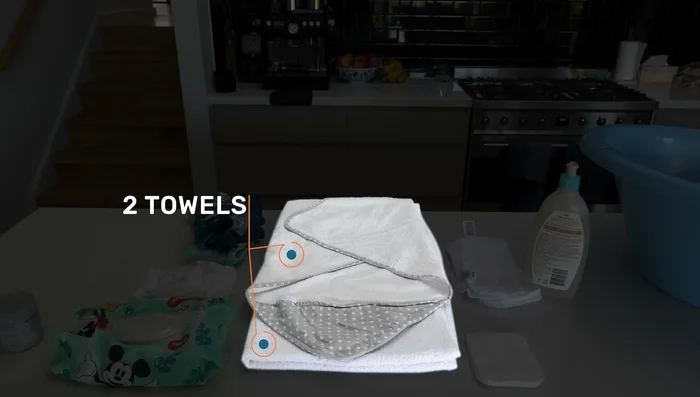Bringing your newborn home is a joyous occasion, filled with wonder and, let's be honest, a little apprehension. One of the first hurdles many new parents face is the seemingly daunting task of bathing their tiny human. Fear not, new parents! Bathing your baby doesn't have to be a stressful experience; in fact, with the right approach, it can be a bonding moment you both cherish. This guide will dispel common myths and anxieties, providing you with the confidence and knowledge to make bath time a safe, easy, and even enjoyable experience.
This ultimate guide will walk you through each step of the process, from gathering the necessary supplies to ensuring your little one is comfortable and secure. We'll cover everything from water temperature and ideal bathing techniques to calming your baby and addressing potential concerns. Get ready to discover the secrets to mastering newborn bathing and transforming this potentially stressful event into a relaxing ritual.
Preparation and Safety Guidelines
- Baby bath
- Two face washers
- Two towels
- Two clean diapers
- Baby wipes
- Baby cream
- Two changes of clothing
- Fragrance and dye-free soap and shampoo (optional)
- Always support your baby's head and neck. Never leave a newborn unattended in or near water.
- Use lukewarm water (check with your wrist – it should feel neither hot nor cold). Test the water temperature before placing your baby in the bath.
- Gather all supplies beforehand (washcloths, towels, soap, etc.) to avoid leaving your baby unattended.
Step-by-Step Instructions
Preparation
- Prepare the room and gather your supplies.
- Warm up the room to prevent your baby from getting cold.

Preparation Fill and Check Bathwater
- Fill the baby bath with water at the ideal temperature (100°F or 38°C). Mix the water and check the temperature to avoid hot spots.

Fill and Check Bathwater Prepare Baby
- Undress your newborn and clean any messes (like poop) before placing them in the bath.

Prepare Baby Lower Baby into Bath
- Gently lower your baby into the bath feet first, supporting their head and neck.
Wash Face and Ears
- Wash your baby's eyelids (inner corner to outer), face, and ears with plain water and a clean face washer. Do not use soap on these areas.

Wash Face and Ears Wash Hair
- Wash your baby's head with water and optional mild soap/shampoo. Rinse thoroughly.
Wash Body
- Wash your baby's body, paying close attention to folds and in between fingers and toes.

Wash Body Clean Diaper Area
- Clean the diaper area, starting at the front and moving back. Rinse thoroughly.
Remove from Bath and Dry
- Lift your baby out of the bath, supporting their head and neck. Wrap them in a towel and dry thoroughly, paying attention to folds.

Remove from Bath and Dry Moisturize and Dress
- Apply moisturizer and dress your baby, keeping them warm.
Read more: Frida Baby 4-in-1 Grow-With-Me Tub: The Ultimate Guide
Tips
- Bathe your baby two to three times a week after the umbilical cord stump falls off.
- The best time to bathe your baby depends on their temperament. Some babies find baths relaxing before bed, while others prefer daytime baths.
- For the first one to two months, washing with water only is recommended.
- Use a non-pump bottle of soap and shampoo for easier dispensing.
- Never use cotton swabs inside your baby's ears.






